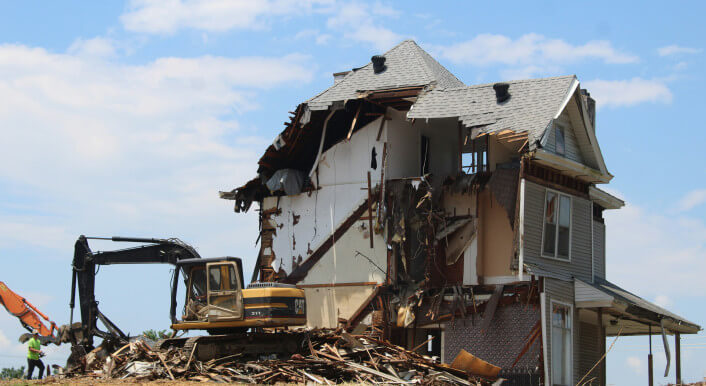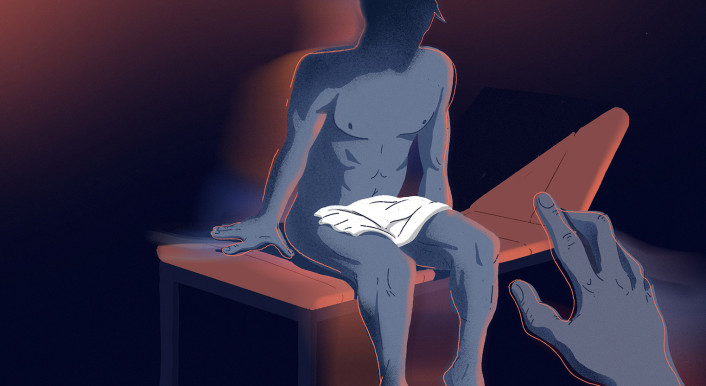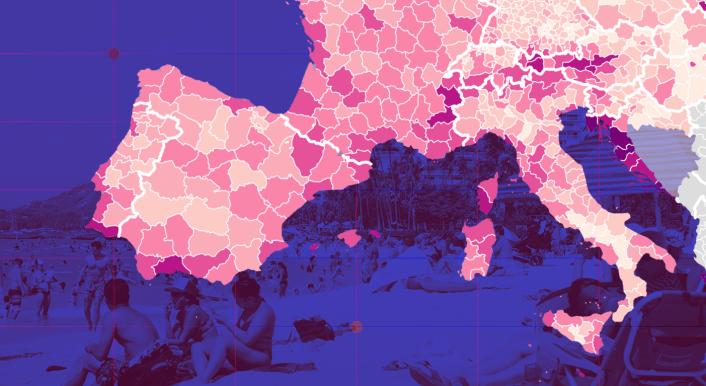The Man Suing Trump
A Conversation with Ben Wizner, US Civil Rights Attorney

It’s a hot Friday morning in New York, within sight of the Statue of Liberty, where the American Civil Liberties Union (ACLU) has been fighting against arbitrary government rule for over a century. Ben Wizner, director of the ACLU’s Free Speech, Privacy & Technology Project, sits in an austere office, wearing a T-shirt with a map of Washington, D.C. as a state—a protest for the rights of the 700,000 residents without congressional representation. Two days earlier, Trump had sent troops into the city.
His voice calm but with that undertone that betrays: This is someone unafraid of the world’s most powerful state apparatus. He already demonstrated this as Edward Snowden’s lawyer: The New York Times Magazine called him “a figure of not insignificant geopolitical importance”, in the course of this work. For months—no, for years—Wizner has been one of Donald Trump’s most important civil society opponents. Not with signs, not with slogans, but with lawsuits. His organization has filed 79 lawsuits since Trump’s return to the White House in 2025. “Litigation is still an effective tactic,” he says dryly. But what does that mean in a country that constantly celebrates itself as an unshakable democracy, while at the same time people are being picked up from universities and deported for individual statements?
We sat down with Wizner to talk about resistance. How to slow down a government that deports immigrants, intimidates the media, and treats the Constitution like a piece of parchment that can be cut up at will. The conversation began with a simple question: How bad is the situation in the United States, really?
“This is not a one-way street to fascism”
Jean Peters: Mr. Wizner, many observers are speaking of a “constitutional crisis” in the United States. Do you share this assessment?
Ben Wizner: I don’t think we’re already in a crisis of no return. But we’re experiencing an assault on laws and norms at a pace and scale unprecedented in modern American history. Trump believes our institutions are weak. But I think they’re stronger than he thinks. There’s more resistance than he expected. And there will be a backlash.
That sounds almost optimistic.
Optimistic? No. Realistic. Look: I started at the ACLU in 2001, a month before 9/11. Back then, I witnessed how the Bush administration responded to the attacks—with torture, secret prisons, forced disappearences, targeted killings, including of US citizens. The US has always been capable of massive human rights violations, especially abroad. But what we’re experiencing now isn’t something that just happened; we can’t pretend it’s completely new. However, this is the first time this violence has been felt so directly at home. Especially for immigrants.
Why them?
Because in the past, neither party really wanted mass deportations. The liberals opposed it for humanitarian reasons, the conservatives because they needed cheap labor. But now we have a wave of xenophobic populism that is changing that. Suddenly, the entire state apparatus is being deployed against one group. And at the same time, all parts of society that might offer resistance are being attacked: independent law firms, universities, the media.
They speak of a systematic weakening of the opposing forces.
Exactly. Take the media: Trump is suing CBS, ABC, and Meta—not because he wants to win, but because he wants to intimidate them. Paramount, which owns CBS, settled a lawsuit against CBS with a large payment to Trump’s presidential library because the company wanted a merger approved. For that, it’s dependent on the Department of Justice. That’s the pattern: Who might resist? And how do we silence them?
What is the situation with independent law firms? Some had agreed to work for the president for free after an executive order sought to revoke their access to government buildings and contracts.
Right, Trump issued executive orders targeting law firms because they either employed lawyers whom he considered his personal enemies or worked on cases that he opposed. The executive orders were manifestly illegal. Four of the law firms challenged the orders in court, and they all won. But Trump could still win by losing. The point of the cases was to chill the entire legal profession – that is, to deter major law firms from taking on any cases against the Trump administration. Nine law firms actually signed deals with the White House, promising to devote hundreds of millions of dollars to Trump’s pet causes. And we’ve already seen much of the private bar retreat from taking on important cases – which means more work for organizations like mine.
“The courts alone are not our salvation”
A lot more work, it seems. The ACLU has filed 79 lawsuits since Trump took office. An unprecedented number.
Yes. And in 75 percent of the cases in which we applied for an injunction against the government, we received one. This shows that the justice system still works.
Can you give an example?
On the first day of his term, Trump signed an executive order that would have repealed the 14th Amendment—the birthright citizenship principle. We sued within an hour. To this day, this decree has never taken effect because every court has blocked it. Or take the Alien Enemies Act of 1798, which Trump used to declare a Venezuelan gang “war opponents” and have its members deported without trial. That, too, was stopped. The courts say: Even in this case, those affected have a right to a fair trial; we are not “at war” with them.
But hundreds of people were still brought to El Salvador, to inhumane prisons, including 137 under the Alien Enemies Act. What if the executive branch ignores the law?
Deporting people to a brutal prison in El Salvador – including some in error – and then claiming to the courts that it was powerless to fix the situation was among the most egregious actions of the Trump administration. But in the face of fierce legal challenges, they have already backed down: Mr. Agrego-Garcia, who was sent there in error, was returned to the U.S., and the Venezuelans who were sent there have been repatriated to Venezuela. Don’t get me wrong: it’s absolutely outrageous that the Trump administration lawyers deceived and defied the courts in these cases. But when push comes to shove, I don’t think the Trump administration will defy a clear order from the Supreme Court. And polls show that even most Republicans don’t want to see Trump ignore court orders.
And what about cases where immigrants are abducted directly from courtrooms?
This is an attack on the legal system itself. When people are afraid to appear in court because they might be deported, the system collapses. We’ve even seen cases where witnesses in criminal trials have been arrested. The police don’t want that—they need these witnesses to solve crimes. But ICE is waiting outside the courtrooms. We’re suing against this practice as well.
Is the government breaking the law?
It’s not illegal for the Trump administration to enforce immigration laws at the federal level. But it is illegal for it to violate the Constitution in doing so. In California, we obtained an injunction prohibiting arbitrary arrests based on racial profiling. The government now claims it can search homes without a warrant under the Alien Enemies Act. That, too, is unconstitutional. Even if the states, the sanctuary cities, don’t cooperate with the Trump administration, that’s not acceptable.
“Sanctuary cities are doing acts of civil disobedience”
The concept of “sanctuary cities” is difficult for Europeans to understand. How does it work?
Imagine a state legalizes marijuana, as is the case in New York, but it remains illegal under federal law. Theoretically, the federal government could now send FBI agents to arrest every user. But it doesn’t. It’s similar with immigration: Sanctuary cities don’t cooperate with the federal government. They don’t share data with ICE. People wanted by ICE can even sue their employers there; they pay taxes. That doesn’t mean ICE can’t take action there — but it makes it much more difficult.
Critics say: These cities are breaking the law themselves.
No. They are simply refusing to assist the federal government in enforcing its laws. Courts, hospitals, and police are refusing to share data with the state. And for good reason: When immigrants are afraid to go to the hospital or call the police, society as a whole suffers. Should a crime go unpunished just because the witness to a brutal attack doesn’t have a passport? Should an untreated disease be allowed to spread through the population because the patients are undocumented? The Trump administration is acting against the interests of police and hospitals here.
But the federal government could simply take action itself.
It could. But it doesn’t have the resources to be present in every city. And that’s precisely the point: Our federal system is inefficient—and that’s an advantage in this case. Power is distributed in such a way that Trump can’t simply do whatever he wants, wherever he wants.
And what about companies like Palantir that provide data to ICE?
We have to differentiate here. Many deportations would be possible even without high-tech. But yes, surveillance technologies like automatic license plate recognition make it easier to track people. These companies are simply trying to sell their products to as many people as possible; that’s their logic. We warn sanctuary cities: If you join such networks, you are undermining your own protective measures. Because once you’re in such a system, you lose control over your data.
“Trump will only be stopped by elections”
What advice do you give to people who live in the US but are not citizens?
They should always carry their papers with them. And they must know: The Trump administration views residency permits as a privilege, not a right. We represent several cases of people who were arrested solely for their political statements—for example, for being critical of Israeli policies. One of our clients, a green card holder, spent 100 days in detention and missed the birth of his first child.
The First Amendment only applies to people with US passports?
No – the Constitution protects “persons,” not “citizens.” But our clients were picked up from their universities by ICE agents and were supposed to be deported. We were able to stop that, but if you want to go to a demonstration these days, or write an article as a journalist, I would always ask beforehand: what is your immigration status? If you don’t have a passport, you’re at risk. That’s actually true. We might win the case in the end, but you might suffer tremendously in the meantime.
And if you don’t have any papers?
I would encourage everyone to read our “Know Your Rights” materials, so they will know what to do in various situations.
On March 8, 2025, Mahmoud Khalil, a pro-Palestinian activist and Columbia University graduate, was arrested by the U.S. Immigration and Customs Enforcement Agency (ICE). The government informed him that it was revoking his permanent residency, even though such revocation can only be done by a court after full due process. Khalil was not accused of any crime – rather, the Trump administration insisted that it could deport him on the basis that his speech and activism were interfering with U.S. foreign policy.
A federal court declared his detention unconstitutional on June 11, 2025, and released him on bail because Khalil posed neither a flight risk nor a threat. But the government is still pursuing legal action to deport him. The ACLU and others are working to prevent that.
This sounds like a frontal attack on the constitution.
It ‘s an attack on the Constitution. But the courts won’t tolerate it indefinitely. The question is: What happens in the meantime?
Many say: At some point the system will collapse, perhaps because there is a shortage of workers or because customs policy is causing havoc.
I don’t know what “collapse” means here. The US isn’t a parliamentary democracy—you can’t impose party discipline across the country. This inefficiency of democracy isn’t a bug—it’s a feature in these times. Every member of Congress has to answer to their constituency. And Trump’s popularity is declining. He may have won a majority in the last election, but his approval ratings are now below 40 percent. Even on immigration, his strongest issue, a majority rejects his policies.
Is that enough?
We will see. Democracy is, after all, a work of art made up of many individual crafts. While legal action can curb the worst excesses, and civil disobedience and protest can strengthen networks of solidarity, only elections will ultimately stop Trump.
And if he does not recognize the elections?
He won’t succeed. The resistance across society will grow. We’re already seeing more than 5 million people at the No Kings protests. Protests against politicians are growing in number in city halls. The question isn’t whether there will be resistance, but what form it will take.
Could it also become violent? After all, there’s the Second Amendment—the right to bear arms.
That’s a misunderstanding of America. The idea that armed citizens could keep such a massively armed surveillance state in check is ludicrous. Anyone who talks like that is playing with a gun in the woods. The US isn’t a country ravaged by civil war. Most gun owners are Trump supporters, not his opponents. And even if they were, guns are of little use against drones and tanks.
Many Europeans are asking themselves – how did it come to this?
Because we thought our institutions were sacrosanct. But democracy doesn’t run itself. It must be defended every day. The coming year, 2026, with the midterm elections, and then 2028, will be crucial. Until then, every form of defense counts.
The interview was conducted by Jean Peters via video call. Ben Wizner is director of the ACLU’s Free Speech and Press Project. The ACLU has filed 79 lawsuits against Trump’s administration since he took office – and won preliminary judgment in three-quarters of the cases.



